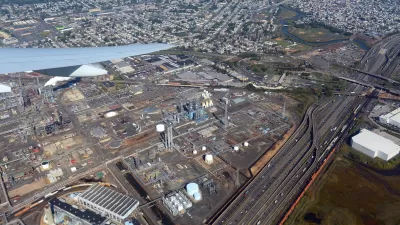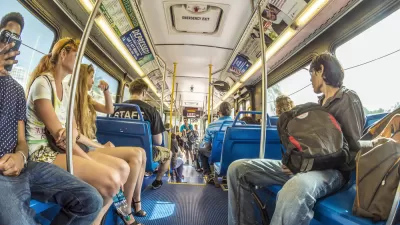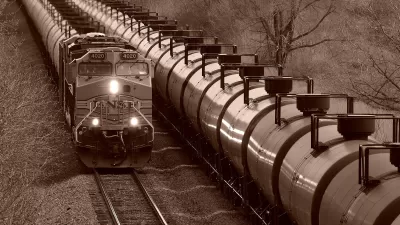It’s great that global warming is finally getting its day in the media spotlight. But with all the buzz about carbon footprints and carbon offsets, I wonder whether the average American now believes that carbon dioxide is the only pollutant that we need to worry about?
It's great that global warming is finally getting its day in the media spotlight. But with all the buzz about carbon footprints and carbon offsets, I wonder whether the average American now believes that carbon dioxide is the only pollutant that we need to worry about?
The attention given to carbon sequestration is perhaps the most worrisome: it implies that we can continue our fossil fuel burning ways because of the promise of largely untested technologies that will scrub carbon emissions before they enter the atmosphere. This false hope is driving the recent bipartisan push behind liquefied coal (coal converted to automotive fuel), the dirtiest "alternative" energy source around. Beware of the Senate and House bills S. 154 and and H.R. 370, which provide billions in subsidies for new coal-to-liquid plants. They enjoy support from prominent Democrats and Republicans who are pandering to their coal-rich home states. Unfortunately, even if carbon sequestration becomes feasible, liquefied coal would still be dirtier and more carbon intensive than today's gasoline.
In a Newsweek interview, Governor Arnold Schwarzenegger suggested that carbon sequestration technologies could be a pathway to guilt-free SUVs: "It's like a box that you put in your car and it takes 40 to 50 percent of the greenhouse gases out of your fuel ". That sounds encouraging, but what about all of the other tailpipe pollutants that are responsible for California's massive air quality problems?
Then there are the proposed synthetic trees -- 1000-foot towers that would suck carbon dioxide out of the atmosphere. Carbon capture and storage may well be necessary to stabilize global CO2 concentrations, but only if it is combined with aggressive reductions in fossil fuel use and a switch to truly green sources of energy like wind and decentralized solar.
The burning of any organic material -- tobacco, wood, food, coal, oil and gas -- releases a long list of harmful pollutants. Here's just a sample of the byproducts emitted by power plants and automobiles:
Particulate Matter (linked to heart and lung disease)
Sulfur Dioxide
Nitrogen Dioxide
Mercury
Lead
Polyaromatic Hydrocarbons (known carcinogens)
Volatile Organic Compounds like Benzene (known carcinogens)
PCBs (known carcinogens)
Dioxins (suspected carcinogens)
1,3 Butadiene (probable carcinogen)
Removing pollutants from inherently dirty energy sources is a tall order, and toxic air contaminants were reason enough to abandon fossil fuels decades ago. Carbon sequestration is a bandaid solution that will do little to address the broad range of challenges associated with our addiction to coal and oil.

Planetizen Federal Action Tracker
A weekly monitor of how Trump’s orders and actions are impacting planners and planning in America.

Map: Where Senate Republicans Want to Sell Your Public Lands
For public land advocates, the Senate Republicans’ proposal to sell millions of acres of public land in the West is “the biggest fight of their careers.”

Restaurant Patios Were a Pandemic Win — Why Were They so Hard to Keep?
Social distancing requirements and changes in travel patterns prompted cities to pilot new uses for street and sidewalk space. Then it got complicated.

Platform Pilsner: Vancouver Transit Agency Releases... a Beer?
TransLink will receive a portion of every sale of the four-pack.

Toronto Weighs Cheaper Transit, Parking Hikes for Major Events
Special event rates would take effect during large festivals, sports games and concerts to ‘discourage driving, manage congestion and free up space for transit.”

Berlin to Consider Car-Free Zone Larger Than Manhattan
The area bound by the 22-mile Ringbahn would still allow 12 uses of a private automobile per year per person, and several other exemptions.
Urban Design for Planners 1: Software Tools
This six-course series explores essential urban design concepts using open source software and equips planners with the tools they need to participate fully in the urban design process.
Planning for Universal Design
Learn the tools for implementing Universal Design in planning regulations.
Heyer Gruel & Associates PA
JM Goldson LLC
Custer County Colorado
City of Camden Redevelopment Agency
City of Astoria
Transportation Research & Education Center (TREC) at Portland State University
Camden Redevelopment Agency
City of Claremont
Municipality of Princeton (NJ)





























